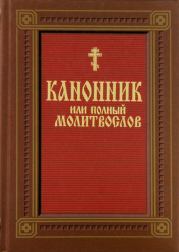Автор неизвестен - Russia under the first Romanovs from Cambridge history of Russia, volume 1
 | Название: | Russia under the first Romanovs from Cambridge history of Russia, volume 1 |
Автор: | Автор неизвестен | |
Жанр: | История: прочее | |
Изадано в серии: | неизвестно | |
Издательство: | неизвестно | |
Год издания: | - | |
ISBN: | неизвестно | |
Отзывы: | Комментировать | |
Рейтинг: | ||
Поделись книгой с друзьями! Помощь сайту: донат на оплату сервера | ||
Краткое содержание книги "Russia under the first Romanovs from Cambridge history of Russia, volume 1"
Аннотация к этой книге отсутствует.
Читаем онлайн "Russia under the first Romanovs from Cambridge history of Russia, volume 1". [Страница - 3]
- 1
- 2
- 3
- 4
- 5
- . . .
- последняя (82) »
Indeed, after the Romanov political settlement, Russian high politics were marked by a general peace for over thirty years. Certainly there were intrigues,
schemes and plots (many of which are unknown to us, hidden by the habit of not writing anything of importance down), but these were the quotidian affairs of every court in every country. The political quiet was shattered, finally, in 1648. Three years earlier, the young Aleksei Mikhailovich succeeded his much venerated father (see Table 19.1). Alexis's former tutor, Boris Ivanovich Morozov, became regent and packed the court and council with his cronies. Though a capable man, he was surrounded by the corrupt Miloslavskii clique (Alexis's first wife was a Miloslavskii; Morozov married her sister, thereby becoming the tsar's brother-in-law). Calls of government corruption grew louder until Moscow and several other cities exploded in riots aimed at bringing Morozov and the Miloslavskiis down. The mob lynched officials, burnt houses and looted shops. At one point, the tsar himself was threatened by the angry crowd. By all reports, this episode had a powerful effect on the youthful, pious ruler.[15] Bowing to pressure, Morozov and the tsar's father-in-law were exiled (only to return shortly), corrupt officials (or at least those the crowd said were corrupt) were brutally executed and the tsar resolved to reform the state in such a way as to make sure such things never happened again.
Alexis turned to the able Prince N. I. Odoevskii for help. He headed a commission designed to solve all the unattended problems faced by Muscovy at one bold, legislative stroke. Perhaps recalling his father's fondness for public input (it had saved them in 1613), Alexis called a massive assembly of 'all kinds of people' in Moscow for this purpose. In hindsight, it was a risky move for an immature leader still reeling from his first taste of popular protest. But the commission did its monumental work, the public acclaimed it, and Muscovy had a roadmap to permanent order - the Sobornoe Ulozhenie of 1649, one of the largest law codes of the early modern period. Like all successful compromises, there was something in it for everyone (or at least everyone who mattered): the powerful had their places next to the tsar affirmed; the gentry received the right to pursue runaway serfs and slaves as long as necessary to return them; and the common urban folks were promised that the corruption would be punished to the fullest extent of the law (which was, we should note, quite far).22 Again, peace reigned at court and in the country. Save two periods of
Table 19.1. The early Romanovs
Roman Iur'evich Zakhar'in
Nikita Anastasiia
IVAN IV d. 1584
FEDOR r. 1584-98 Fedor (Patriarch Filaret) d. 1633
..m. (2) Natal'ia Naryshkina
MICHAEL r. 1613-45
ALEXIS m. (1) Mania Miloslavskaia . r. 1645-76
IVAN V r. 1682-96 FEDOR r. 1676-82
Sophia Regent, 1682-9
PETER I ('the Great') r. 1682-1725
urban unrest brought on by debasement of the silver with copper (1656 and 1662), all was quiet. Or so it appeared. Under the calm surface, however, an important struggle was occurring at the very heart of Muscovite high politics.
The greatest cause of Alexis's reign (and his greatest triumph) was the Thirteen Years War, his effort to recoup the losses suffered at the hands of the hated Poles. Personally marching off to battle in 1654, he took a direct interest in making sure his crusade was brought off successfully. In the course of his campaigning, Alexis must (and here we are speculating) have judged for himself the merits (and demerits) of his soldiers, for he came back to the capital devoted to the idea of reforming, if not overturning, the existing political order.[16] In the context of a rapidly evolving administrative and military situation, the traditional boyar elite had become distinctly less useful. Even men of low status did not respect them, as Kotoshikhin's unflattering portrait demonstrates.24 Talented men - regardless of birth - who were willing to serve and serve well were needed. Given the rules of appointment to the boyar ranks, such 'new men' had no chance to attain the highest honours. Merit was not being rewarded, at least not in the way Alexis believed it should be. Obviously, the rules had to be changed so as to allow the entry of the 'new men'.[17]
The tsar did not bring the 'new men' into the duma all at once. He could not do so without risking a costly and dangerous political battle with the old elites. Rather, he pursued a conservative approach, appointing a few 'new men' at time. But even here his options were limited by the hold of the old elites over the upper ranks. Alexis knew that they would probably grumble if he promoted men oflower status to the highest ranks in the duma orders, forthese were the traditional preserve of the old elite. Neither could Alexis make the more honourable of the 'new men' conciliar secretaries (dumnye d'iaki), for that rank was deemed too low for the hereditary servitors in the sovereign's court. Therefore Alexis opted for a strategy that would at once appease the hereditary boiarstvo and permit him to promote the 'new men': he transformed the rank of conciliar courtier (dumnyi dvorianin). The chronology of events is telling. In 1650, Alexis took the unprecedented step of appointing a fifth man to dumnyi dvorianin. Prior to that act, the largest number of dumnye dvoriane had been four (in 1634 and 1635), and ordinarily there had only been one. By the first year of the war, there were eight of them. During the war, he promoted sixteen more. Among them we find many of Alexis's 'new men'.[18] During the war the tsar began to promote his dumnye dvoriane into the ranks of okol'nichie.27 One of them, A. L. Ordin-Nashchokin, was made boyar in 1667 and served as effective prime minister until 1671. In that year another 'new man', A. S. Matveev, took his place, though he was not promoted to boyar until 1674.28
Under Alexis, then, two prominent 'new men' came to rule Russia. Others exercised less visible but no less important roles as leaders in the chancellery system. In all, Alexis appointed forty-eight low-status 'new men' to the duma ranks. As we can see in Figure 19.3, the tsar entrusted them with a great number of Muscovy's highest administrative offices.[19]
Particularly notable is the fact that Alexis placed his 'new men' in the most important prikazy: the Military Service Chancellery (Razriad), arguably the most powerful prikaz in seventeenth-century Muscovy; the Service Land Chancellery (Pomestnyi prikaz), which administered estates given to the gentry throughout Russia; and the Ambassadorial Chancellery (Posol'skii
--">- 1
- 2
- 3
- 4
- 5
- . . .
- последняя (82) »
Книги схожие с «Russia under the first Romanovs from Cambridge history of Russia, volume 1» по жанру, серии, автору или названию:
 |
| Н В Маслов - Святые врачи безмездные чудотворцы Жанр: Религия Год издания: 2016 |
Другие книги автора « »:
 |
| Автор неизвестен - Роковая ночь Жанр: О любви Год издания: 2007 Серия: Принцесса Востока |
 |
| Автор неизвестен - Ирландские саги Жанр: Мифы. Легенды. Эпос Год издания: 1933 Серия: Сокровища мировой литературы |







